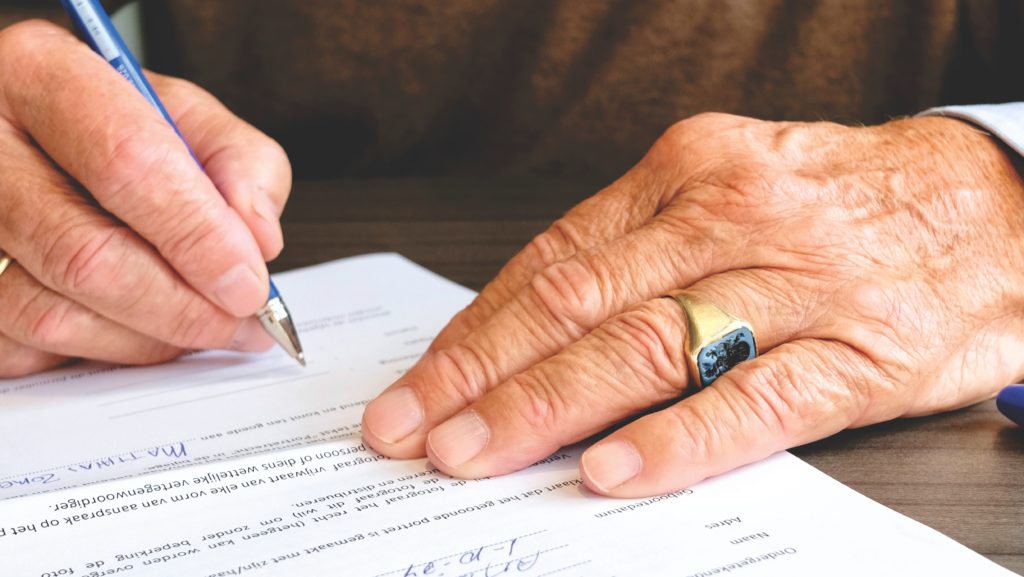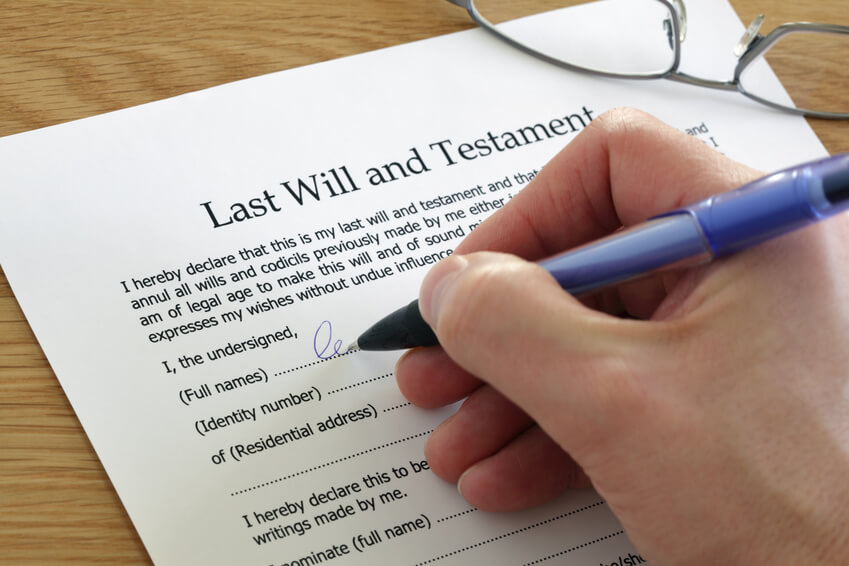10 Things to Consider When Making a Will
Let’s face it, there are more cheerful things to think about than what happens to our assets when we die, and the thought of making a Will can seem quite a daunting process.
However, making a Will creates clarity and peace of mind both for you and those you leave behind, and with the right help the process can be simple and stress-free.
If you’re looking to write a Will, here are ten things that you should definitely consider:
1. What are your assets?
Before making your Will, you should take some time to consider and write down what the assets of your estate are, and their values. For example, this could include property, savings, investments, life policies and personal
possessions. This exercise can be very helpful ahead of a meeting with your solicitor, as some financial or tax planning needs to be carried out as part of the Will making process. It will also help you to consider whether you want to make specific gifts or other arrangements relating to individual assets.
2. Who do you want to benefit under your Will?
This will depend upon your personal circumstances, but you need to consider whether any potential beneficiaries might need special consideration due to their age, vulnerability or other circumstances. It is also possible to grant rights over your assets for one beneficiary, but then have the asset pass to another beneficiary when those rights end. This can be particularly useful for property arrangements.
3. Who do you want to deal with your estate?
The Executors that you appoint in your Will are responsible for the administration of your estate and carrying out your wishes. You need to think carefully about who you appoint to this role as your executors need to be trustworthy and reliable, in order to guarantee that your wishes are properly carried out. If your estate is likely to be difficult or contentious, you may need to consider independent or professional executors. If you are leaving any part of your estate to someone who could be under 18 at the date of your death, or any other trust provision, you need to consider appointing at least two trustees to hold those assets in the terms of your Will.
4. Guardians
Although we all hope that it will never be necessary for Guardians appointed in our Will to act in said role, it is crucial to note that the decision of who to appoint is arguably the most important in writing your Will.
If you have children who could be under the age of 18 at the date of your death, then you should appoint guardians to look after them after your death until they reach the age of 18. The Guardians appointed under your Will take on parental responsibility for your children and therefore you need to consider this role and responsibility very carefully.
5. Inheritance tax
Once you have provided details of your assets, your solicitor will be able to advise you on whether there will be inheritance tax payable on your estate and if so, what you can do to reduce the tax bill.

6. Third-party threats
When you leave any part of your estate to a beneficiary, that inheritance then becomes part of the beneficiaries’ own estate for all purposes. This can leave the inheritance vulnerable to third-party threat, for example, from divorce, bankruptcy, poor decision-making, etc. If you are concerned about these third-party threats then it may be possible to safeguard part of your estate through the use of trusts.
7. Changes in circumstances
Are there any foreseeable changes to your circumstances that might alter the terms of making a Will? If so, you might need to build some flexibility into the Will, and trusts are often used to provide protection and flexibility.
Marriage and remarriage will automatically revoke (cancel) your Will unless it specifically states intentions to the contrary. A divorce won’t automatically revoke your will, but it can alter the terms of any will you have in place.
8. Proper signing and witnessing
Your Will isn’t valid until it is properly signed and witnessed. A Will that hasn’t been signed and witnessed correctly may be invalid or open to challenge.
9. Let people know
Once you have made your Will, and in particular if you have appointed someone to the role of Executor, Trustee or Guardian, then it would be sensible to let those people know that you have made a Will, where it is kept, and what role you have given them. It is also important that you keep your paperwork in good order so that your Will and estate assets can be easily identified after your death.
10. Review your Will
It is important that you review your Will periodically to ensure that it continues to reflect your current wishes. It is particularly important to review your Will if you (or any of your beneficiaries, Executor, Trustee or Guardian) have any significant change of circumstances. Even if the circumstances haven’t changed significantly, it is still worthwhile reviewing your Will periodically to keep up to date with changes in the law that might affect you.
The process of making a Will is much easier than you think. If you’re looking to create a Will, we recommend you contact us to have a chat about how we can make the process as simple and stress-free as possible for you. You can telephone us on 01782 652300 or email us at lawyers@tinsdills.co.uk right now.
We’re here to help.




